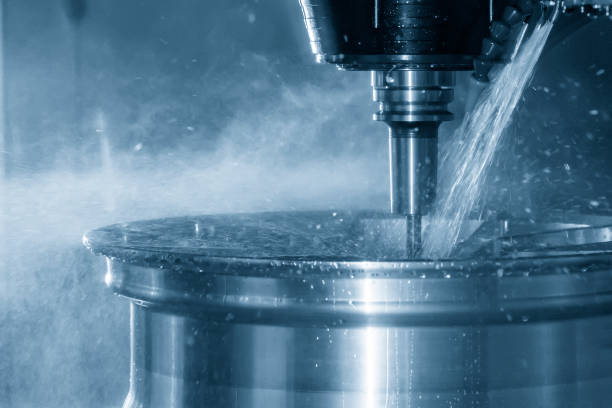Introduction
Magnesium casting is a revolutionary technique that has gained momentum in recent years due to its numerous advantages and wide range of applications. This article will explore the advantages of magnesium casting and discuss its applications in different industries.
Advantages of Magnesium Casting
1. Lightweight and High Strength
One of the key advantages of magnesium casting is its lightweight nature combined with high strength. Magnesium is the lightest structural metal, weighing approximately two-thirds less than aluminum and one-quarter of steel. Despite its low density, magnesium boasts a high strength-to-weight ratio, making it an ideal material for applications where weight reduction is critical, such as in the aerospace and automotive industries.
2. Excellent Machinability
Magnesium casting offers excellent machinability, allowing for intricate and complex designs to be easily manufactured. The material exhibits good dimensional stability, which ensures precise and accurate parts. Its machinability also enables cost-effective production and reduces the need for additional processing steps.
3. Superior Thermal Conductivity
Another advantage of magnesium casting is its superior thermal conductivity. Magnesium dissipates heat quickly and efficiently, which is essential in applications where temperature management is vital, such as in electronic devices and heat sinks. Its excellent thermal conductivity helps prevent overheating and ensures optimal performance.
4. Good Electromagnetic Shielding
Magnesium possesses remarkable electromagnetic shielding properties. It effectively absorbs and attenuates electromagnetic waves, making it suitable for applications that require protection against electromagnetic interference (EMI), such as in electronic devices, communication systems, and medical equipment. Magnesium casting provides reliable EMI shielding while maintaining its lightweight characteristics.
5. Enhanced Corrosion Resistance
Magnesium casting exhibits enhanced corrosion resistance, particularly when compared to other metals like steel and aluminum. This resistance is due to the formation of a protective oxide layer on its surface, which acts as a barrier against corrosive elements. This makes magnesium a preferred choice for applications in corrosive environments, such as marine equipment and components exposed to harsh chemicals.
Applications of Magnesium Casting
1. Aerospace Industry
The aerospace industry has been an early adopter of magnesium casting due to its lightweight and high strength properties. Magnesium is used in various aircraft components, including engine parts, landing gears, and structural components. Its low weight contributes to fuel efficiency and extends the range of aircraft, while its strength ensures the structural integrity required for safe flight.
2. Automotive Industry
In the automotive industry, magnesium casting is gaining popularity as a means to reduce vehicle weight and improve fuel efficiency. Magnesium is used in engine blocks, transmission cases, and other structural components. The weight reduction achieved through magnesium casting contributes to lower emissions and better overall performance.
3. Medical Industry
Magnesium casting finds applications in the medical industry as well, particularly in the manufacturing of medical implants and devices. Its lightweight nature, corrosion resistance, and biocompatibility make it suitable for orthopedic implants, bone fixation devices, and surgical instruments. Additionally, magnesium\’s good electromagnetic shielding properties are utilized in medical equipment that requires protection from EMI.

4. Electronics Industry
The electronics industry benefits from magnesium casting due to its excellent thermal conductivity and electromagnetic shielding properties. Magnesium is used in the production of heat sinks, electronic enclosures, and other components that require efficient heat dissipation and EMI protection. Its lightweight characteristics are also advantageous in portable electronic devices.
Conclusion
Magnesium casting offers numerous advantages that make it an attractive choice for various industries. Its lightweight and high strength properties, along with excellent machinability and thermal conductivity, make it well-suited for aerospace, automotive, medical, and electronics applications. Furthermore, magnesium\’s enhanced corrosion resistance and electromagnetic shielding properties further widen its scope of use. As technology advances and research in magnesium casting continues, we can expect to see its increased adoption in even more industries in the future.
-

- Maqnezium ərintisi tökmə hissələri velosiped çərçivəsi CNC emal və səthi bitirmə
-

- High precision magnesium thixomolding components laptop housing cover A
-

- Oksigen emiş maşınının korpusu üçün maqnezium ərintisi tiksomolding hissələri
-

- Maqnezium ərintisi tiksomolding kalıp tökmə İHA hissələri C
-

- Magnesium alloy die-casting auto parts center control cover
-

- Xüsusi tökmə məhsulları e-velosiped komponentləri maqnezium lehimli təkər

 0086-750-5616188
0086-750-5616188 +86 13392089688
+86 13392089688 sales@zhongmei-tech.com
sales@zhongmei-tech.com







